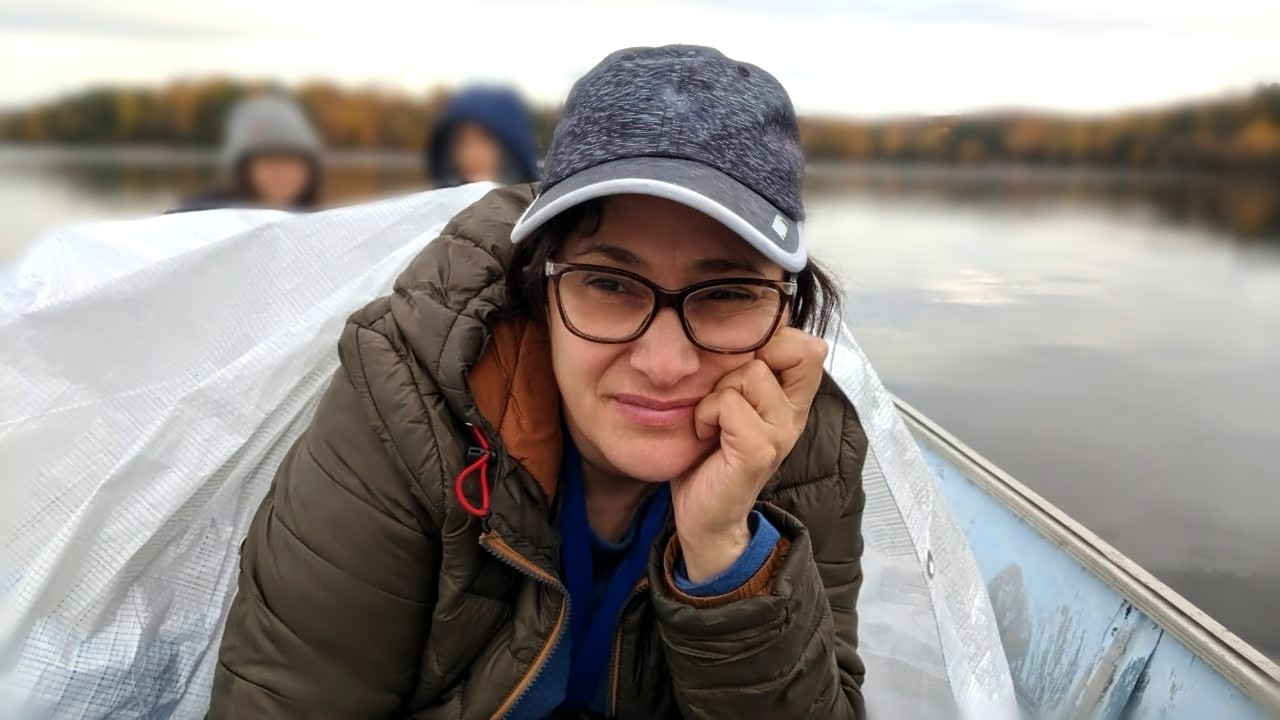Zeina El Omari
"I'm building a community of entrepreneurs."

Zeina El Omari is an M.A. candidate in the Individualized Program in Social Sciences at the School of Graduate Studies. She received the Experiential Learning (EL) Grant to develop an incubator for refugee women. The objective of the incubator is to offer workshops in food production, transformation, distribution and social entrepreneurship, as well as to create the necessary structures to facilitate participation. More importantly it wishes to address issues related to food insecurity, inequity, and racism through the creation of an intentional community and a social network as well as by providing tools and opportunities for the participants to launch their own social enterprises and facilitate their social and professional integration in Quebec.
In the fall of 2019, Ms. El Omari was introduced to Bâtiment 7 and the Fermette de la Pointe-Saint-Charles through the Living Labs Initiative. Soon after, she became an active member of both Bâtiment 7’s garden circle and the Fermette Committee, a regroupement that includes Action Gardien, le Club Populaire des Consommateurs, Le Détour and Bâtiment 7. The objective of the Committee is to develop a sustainable urban farm that includes, inter alia, a food forest, a small animal farm, a food transformation hub, a greenhouse, and agricultural land.
Thanks to two courses Ms. El Omari was enrolled in (involving Ethics and community engagement at the Simone de Beauvoir Institute and the fundamental skills in CED Practice at the School of Community and Public Affairs) the idea to develop an incubator for social enterprises for refugee women with a background in agriculture was born. This project will be part of Zeina’s doctoral research which uses a community-based Feminist Participatory Action Research framework (FPAR) to explore the relationship between refugee resettlement in Canada and sustainable food systems. She works with four other women who have experience in refugee and immigrant advocacy, community organizing, urban agriculture, popular education, transformation and distribution, hygiene and food safety, facilitation, care work, management and much more.
Part of Ms. El Omari’s work encompassed developing a living document which includes sections on how to do outreach and networking, fundraising, the best practices for accessible events, how to develop webinars, panel discussions, and events on Zoom and finally developing and delivering workshops. “Throughout the summer and fall I started doing some research for the living document as well as some outreach and networking. Indeed, I met with different immigrant and refugee organizations, with immigrant farmers, with micro financing organizations as well as networked with Concordia and McGill students, with members of Bâtiment 7, and citizens from the Pointe-Saint-Charles and the surroundings. I also prepared an official proposition for the creation of the incubator project which was unanimously approved by the Fermette Committee” says El Omari.
In January and February of 2021, the team will finish developing, redesigning, and scheduling the workshops. These workshops will include, horticulture, permaculture, mushroom growing, commercial food transformation, hygiene and food sanitation, fermentation and preservation, and more. Lastly, they are hoping to welcome their first cohort of six to seven participants in the beginning of March, on time for the garden planning, seed growing and transplantation.
“My experience developing this unique project at la Fermette de la Pointe-Saint-Charles has been so rewarding and illuminating. Indeed, it has allowed me to meet amazing people from all walks of life. But it has also allowed me to further develop some of my skills sets, such as communication, persuasion, leadership and collaboration, social perceptiveness, judgement, decision-making and negotiation, active listening, preparation, time, resources and financial management, as well as judgement, decision-making, initiative and self-direction and finally cultural awareness.”
Zeina wishes to express her deepest gratitude to Dr. Natalie Kouri-Towe and Alex Megelas from the Office of Community Engagement for their time, unwavering support and wise advice throughout the whole process.
This article was written by Emily Andrews.
